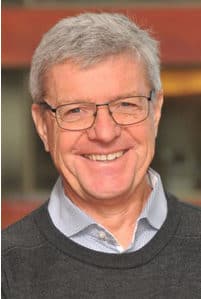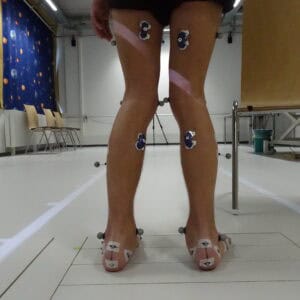EXPERT
Understanding & treating crouch gait
Walking is a matter of course?
The development of walking is a highly complex process and depends, among other things, on biomechanics, body perception, sensory perception, psychological safety - and neurology. But what if one of these factors leads to the development of a crouch gait?
This digital course is aimed at professionals who support people with neurological diagnoses. The focus is on crouch gait - a complex gait pattern that often occurs in neuromuscular diseases and significantly restricts the independence of those affected.
The treatment of crouch gait is considered particularly challenging: complete normalization is usually not achieved. This makes a sound understanding of its development and dynamics all the more important. Instead of focusing exclusively on visible symptoms, this course provides in-depth knowledge of the multi-layered causes of the gait, including the sensory system.
It's not just about biomechanical correlations, but also about difficult-to-measure, often hypothetical factors: How does a step feel when you don't dare to take it?
How do body perception, sensory feedback and psychological safety influence the gait pattern?
In the course, you will learn which factors can promote the development of crouch gait. You will gain practical insights into therapeutic approaches to specifically counteract this development, prevent deterioration and effectively advise and support your patients.
Course content
- Introduction to the topic
- Somatosensory system & crouch gait
- Development of the crouch gait
- Treatment & prophylaxis of crouch gait
- Final test
This course is aimed at anyone who is concerned with gait:
Physiotherapists
Sports therapists
Doctors and physicians
Movement and health scientists
Orthopaedic technicians
120 minutes learning time
Handout included
available for 6 months from booking
Meet the teacher

Prof. Dr. med. Reinald Brunner
Prof. Reinald Brunner was head of neuroorthopaedics and the gait laboratory at the University Children's Hospital Basel and shaped the clinical and scientific study of gait disorders in children for decades. He was and is particularly interested in gaining a deeper understanding of the crouch gait - a complex gait pattern that is often difficult to treat and severely restricts the independence of patients with neuromuscular diseases. In his many years of working on the topic, it became clear that, in addition to biomechanical aspects, other factors that are difficult or impossible to measure must also be included in the analysis of the development, prevention and treatment of masticatory gait. Because: "We only take one step before the next when we feel safe."
info video
crouch gait
Training points
and
Certificate
You will receive the following training points for this course

- Occupational Therapy Association (EVS): 2 teaching units
- physioswiss: 2 teaching unit

- Ergotherapy Association: 2 teaching units
- Physiotherapy Association: 2 teaching units
- German Association for Health Sports and Sports Therapy (DVGS): 2 teaching units

- Umbrella organization of medical-technical services (MTD): 2 teaching units*
After completing the course, you will automatically receive a personal certificate that you can use as proof of your training
* Our confirmation of participation can be submitted to your professional association as part of an application for the MTD-CPD certificate.


